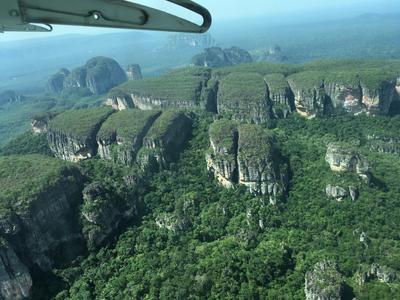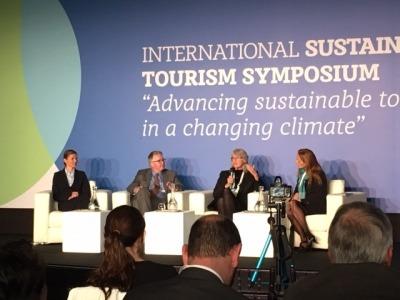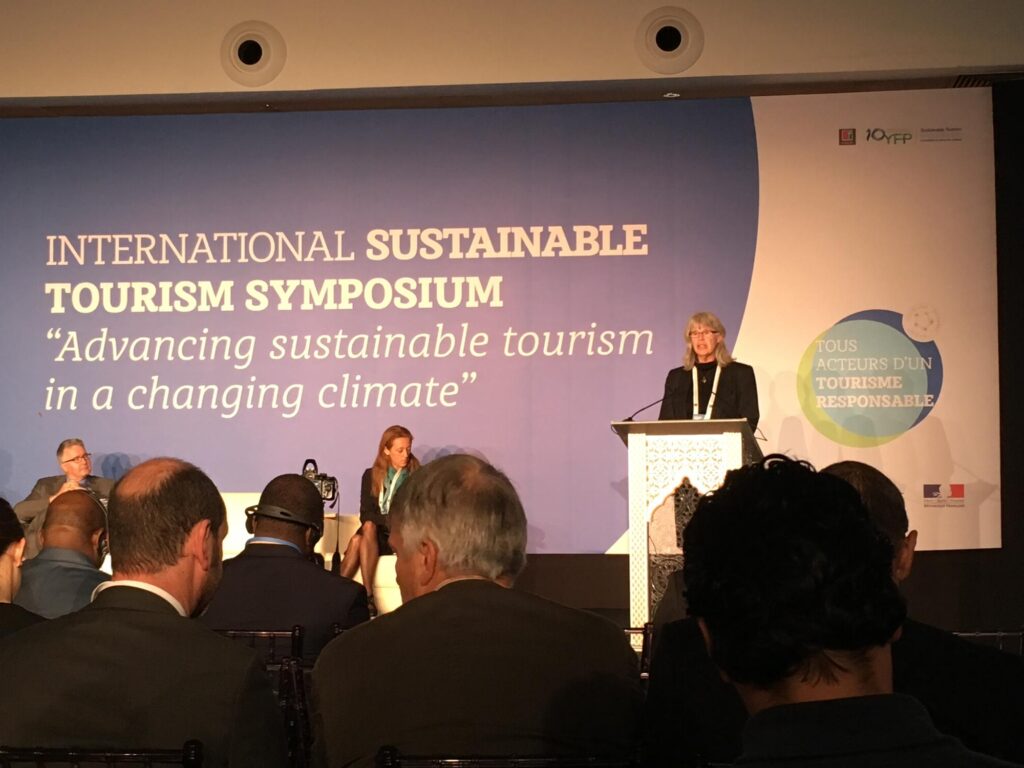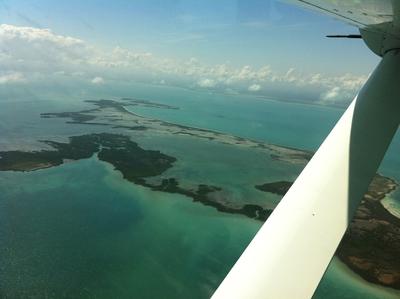Resources, Interviews, Features, & Blogs
November 2020
Harvard Business School Case Study | Wilderness Safaris: Responses to the Covid-19 Crisis
By James E. Austin, Megan Epler Wood, and Herman B. “Dutch” Leonard
This case is an epilogue to “Wilderness Safaris: Impact Investing and Ecotourism Conservation in Africa” (See below), which ends with the emergence of the pandemic in March 2020. The final discussion area for that case can be “What should Wilderness Safari CEO Keith Vincent do to confront the challenges of the pandemic?” This case documents, in the CEO’s own words, what actions and plans Vincent and the company had taken or formulated as of July 2020. The areas covered are: Governance and Decision Making, Cash Management, People, Communities, Travel Agencies and Customers, Conservation, Reopening, and Investor Reactions and Future Projects. The case is only five pages, so it could be used as an in-class handout after the discussion of the previous case, with the follow-up class discussion taking place then, if sufficient time is available, or in the subsequent class. The focus of the discussion is on the students’ analysis and evaluation of Vincent’s actions and plans. The case particularly offers learning opportunities for risk assessment, leadership, and management in crisis situations.

October 2020
By James E. Austin, Megan Epler Wood, and Herman B. “Dutch” Leonard
In 2018 the majority ownership of publicly owned Wilderness Safaris, the leading high-end ecotourism company in Africa with safari operations in eight countries, was acquired by The Rise Fund, one of the world’s largest private social impact investing funds, and by FS Investors, a private equity investment firm. This is a follow-on case to “Wilderness Safaris: Ecotourism Entrepreneurship,” (See above) which focuses on the company’s origins, growth, and distinctive 4C business model based on Commerce, Conservation, Community, and Culture. The two cases can be used sequentially or independently. The current case provides an opportunity to examine the investment rationale of the impact funds and their methodology for measuring and assessing nonfinancial impact variables, such as avoided deforestation and the social cost and pricing of averted carbon emissions. Changes and effects in governance resulting from the buy-out and the subsequent taking the firm private are presented. The case poses strategic investment decisions in Rwanda and Angola, which is the source of the Okavango Delta and the second largest forested region of the world. Questions of business decision making based on the preservation of natural capital and the management of the region’s protected areas are reviewed. It ends with the challenges from the emergence of the COVID 19 pandemic in March 2020.

April 2018
Harvard Business School Case Study | Wilderness Safaris: Ecotourism Entrepreneurship
By James E. Austin, Megan Epler Wood, and Herman B. “Dutch” Leonard
Wilderness Safaris sees itself as a conservation company that is built on a business model of providing high-end, premium-priced wildlife safaris in various locations in Africa. Dependent on functioning, healthy ecosystems for its long-term survivability as a business, it invests heavily in conservation efforts, both directly, with communities and governments, and with partners and competitors. It may be reaching saturation of the high-cost, high-priced, low-volume, luxury travel product in its existing locations, so to continue its growth it is now trying to expand into East Africa, where the traditional safari approach by most providers has been a high-volume, low-cost, low-priced product. As a publicly- listed company, can Wilderness Safaris find a sustainable growth path that will allow it to profitably expand its business and meet its shareholder’s interests while still achieving its priority purposes of protecting and investing in the ecosystems and communities on which its services are based?

February 10, 2018
Why the private sector must protect tourist destinations
The following is an edited excerpt from “Sustainable Tourism on a Finite Planet” by Megan Epler Wood (Taylor & Francis, 2017).
To understand the growth of destinations and the exact demands this growth will have on local resources and residents is the best antidote. Systems to anticipate and calculate this growth, and pay for the services and preservation of valuable assets that will be required, is the only way to avoid the worst aspects of insistent demand.

November 30, 2017
Skift Podcast: Finding Solutions for the Overtourism Dilemma
On this episode of the Skift podcast, the conversation about the way destinations can start to address the problems of overtourism is discussed with Megan Epler Wood. Epler Wood spoke with tourism experts Andrew Sheivachman and Dan Peltier and news editor Hannah Sampson.

October 23, 2017
“Proposing Solutions to Overtourism in Popular Destinations: A Skift Framework”
The world is in an unprecedented period of tourism growth, and not everyone is happy about it. Arrivals by international tourists have nearly doubled since 2000, with 674 million crossing borders for leisure back then and 1.2 billion doing the same in 2016.
As the travel industry has ramped up its operations around the world, destinations have not been well-equipped to deal with the economic, social, and cultural ramifications. Cities have often made economic
growth spurred by traveler spending a priority at the expense of quality of life for locals.

August 8, 2017
On Ecotourism in Colombia with Megan Epler Wood
National Geographic sat down with the Megan Epler Wood, founding director of our International Sustainable Tourism Initiative, to learn about her recent trip to Colombia.
“Epler Wood explained her philosophy on tourism, something she sees as a way of life rather than an act of consumption. ‘I try not to look at what cannot be missed, she said. The more we think about what we cannot miss, the more likely we are to miss what is right in front of us. I see tourism as a way of experiencing the world, which allows us to open our minds, not try to be in the “right place.” For this reason, I try to get a feeling for the place, the history, the people, and of course the landscape and its immense animal and plant diversity. All those things are unforgettable in Colombia.'”

May 24, 2017
Using Tourism Revenue to Strengthen Local Communities
Peter Leyden from Reinvent interviews Megan Epler Wood as part of the “Future of Sharing” Series. In the interview, Epler Wood shared her recommendations for increasing sustainability in the tourism industry while discussing her book, Sustainable Tourism on a Finite Planet. She advocates for an international summit meeting to identify existing challenges and think critically about the areas most in need of investment.

May 22, 2017
Saving the Heart and Soul of Tourism Destinations
Why are tourism destinations becoming so crowded and what is being done about it? Politico Magazine stated in early 2017, “Amsterdam tries to stem tourist flood and save its soul” and “Barcelona declares war on tourism.” The Independent reported on “the death of Venice” in 2015. These cities have seen dramatic escalation in visitation that needs attention. Global travelers and the industry are taking note.

February 17, 2017
Ecotourism is Not the Answer to Sustainable Tourism
Megan Epler Wood, Founding Director for the International Sustainable Tourism Initiative, blogs about her trip to Colombia, where she attended the Nobel Peace Laureate Summit in Bogota and was honored to share the stage with laureate Leymah Gbowee of Liberia.
“I just returned from the country of Colombia where approximately one-third of its biodiverse landscapes are opening up to tourism due to a sweeping agreement in December 2016 to end their 50 year civil war. I flew over vast regions of their Orinoco and Amazonian states east of the Andes filled with emotion upon seeing the beautiful parks and protected areas there.”

January 28, 2017
Interview with Peter Greenberg
Peter Greenberg, the travel editor for CBS News, interviewed Megan Epler Wood, Founding Director of our International Sustainable Tourism Initiative, to tackle tough issues facing destinations around the world, including Greece, Italy, and Cuba. Megan also shares insights from her book, Sustainable Tourism on a Finite Planet.
To listen online, jump to 1:16 or 76:00 for the segment with Megan.

November 12, 2016
Let’s Stop Congratulating Good Examples and Raise Money for Them Instead
The final day of work in Marrakech was a day of presentations on a panorama of small projects from delegates around the world, who came to discuss their efforts to lower the impacts of excess tourism consumption.

November 11, 2016
The sessions on tourism and climate change in Morocco were inspiring. We kicked our event off with an official statement from Patricia Espinosa, the UNFCCC Executive Secretary. She definitively stated that tourism must be part of the global effort to manage carbon and prevent the rising of global temperatures over 2 degrees centigrade. Read more here.
View Megan Epler Wood’s Lecture for COP 22 on November 11, 2016:

November 10, 2016
The total number of climate management delegates in Marrakech, Morocco is expected to reach 20,000 people before the full event is over. Our small group of some 150 experts in sustainable tourism has been brought together by the United Nations Environment Programme (UNEP) to discuss how the tourism industry can respond the climate crisis.

September 27, 2016
The Decision in Montreal – Can Tourism Be Sustainable?

September 20, 2016
Why Don’t We Ever Discuss The Carbon Impacts of Flying?
Flights over 1000 miles long are responsible for over 80 percent of the greenhouse gas impacts of air travel. While environmentally aware individuals worldwide agree that climate change is a proven challenge for our planet, few have changed their travel behaviors.


